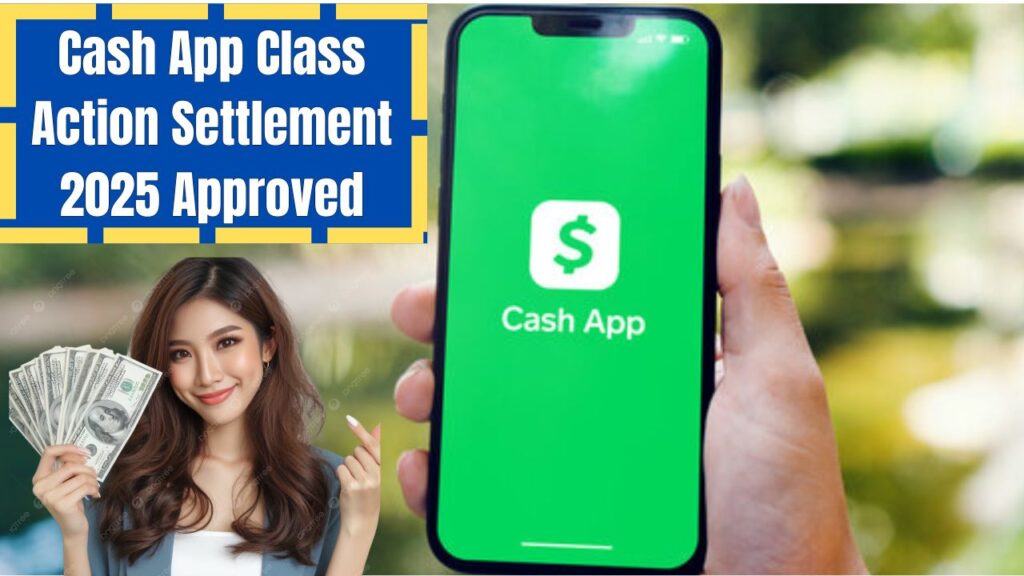Cash App Class Action Settlement 2025 Approved: The parent company behind the popular peer-to-peer payment service Cash App—has been hit with major penalties following a Consumer Financial Protection Bureau (CFPB) investigation that uncovered significant lapses in user protection and compliance with federal consumer laws. The agency ordered Block to provide up to $120 million in direct refunds to impacted users and pay a $55 million fine to the CFPB’s victims relief fund.
With over 56 million active users, Cash App has become one of the most widely used financial apps in the United States. However, this growth came with serious shortcomings in fraud prevention, dispute resolution, and customer support.
Why Cash App Class Action Were at Risk
The CFPB found that Cash App’s weak security measures left millions vulnerable to scams and unauthorized transactions. Here’s how users were affected:
- Unauthorized Transactions: Users reported fraudulent transfers, often with little to no help from Cash App.
- Lack of Proper Investigation: Instead of conducting internal reviews, Cash App redirected victims to their banks—misleading users about who was responsible for handling disputes.
- Poor Customer Service: Victims struggled to reach real support. The listed phone number led to unhelpful automated messages, while in-app messaging and mail delayed resolutions.
- Phishing & Scams: Fraudsters impersonated Cash App representatives online, tricking users into revealing personal information. Despite knowing this, the company failed to act swiftly.
Important Points from the CFPB Investigation
The CFPB identified four critical areas where Cash App violated consumer protection laws:
1. Failure to Investigate Fraud Properly
Cash App breached the Electronic Fund Transfer Act (EFTA) by closing unauthorized transaction cases without adequate review or issuing rightful refunds.
2. Deceptive Terms of Service
Cash App falsely indicated that user banks should handle disputes, contradicting federal regulations requiring peer-to-peer platforms to investigate directly.
3. Nonexistent Customer Support
Users were unable to access live help, with many left in the dark during urgent situations involving account fraud or unauthorized charges.
4. Insufficient Fraud Prevention
The app failed to implement essential security protocols, exposing users to well-known scams and phishing attempts.
Breakdown of the $175 Million Penalty
| Penalty Type | Amount | Purpose |
| Consumer Refunds | Up to $120M | Reimburse users for fraud, lack of investigation, and locked accounts |
| CFPB Relief Fund Fine | $55M | Contribute to broader victim support through the CFPB’s victims fund |
No action is required from users to receive a refund—Cash App is responsible for identifying affected accounts and issuing reimbursements automatically. The CFPB will oversee this process to ensure compliance.
$3089 Federal Benefits for Couples: Are You Eligible?
$1886 SSI Benefit in April 2025: How to Qualify for State Supplement SSI Payments
Who Qualifies for a Refund?
Cash App users eligible for compensation include:
- Those whose fraud claims were never properly investigated.
- Victims of scams who did not receive legally required refunds.
- Users whose accounts were locked without access to provisional credits.
Refunds will be issued directly to users by Cash App, along with official notification.
What Will Change for Cash App Users?
The CFPB order forces Block, Inc. to implement sweeping reforms to protect consumers:
1. Improved Fraud Detection
The platform must install advanced fraud monitoring tools and respond more swiftly to suspicious activities.
2. Clear Dispute Resolution Process
Cash App will be required to educate users about their rights under EFTA and offer a straightforward process for reporting unauthorized transactions.
3. Routine Compliance Audits
The CFPB will perform regular audits to evaluate Cash App’s fraud prevention systems and customer service practices.
What Is the Electronic Fund Transfer Act (EFTA)?
The Electronic Fund Transfer Act (EFTA) is a federal law that safeguards users from unauthorized electronic transactions. It outlines key consumer rights:
- 60-Day Reporting Window: Users have 60 days to report unauthorized activity from the date of their bank statement.
- 10-Day Investigation Deadline: Platforms must investigate within 10 business days.
- Provisional Credit Requirement: If more time is needed, providers must offer temporary reimbursement.
Cash App’s failure to comply with these rules led to the CFPB’s intervention and penalties.
A Turning Point for the Fintech Industry
This enforcement action sends a clear message to fintech companies: consumer protection must come first. As digital financial services grow, so does the responsibility to maintain strong security systems and transparent customer service policies.
The Cash App settlement underscores the importance of regulatory oversight in fintech. Companies that neglect compliance with federal laws—especially those protecting users from fraud—risk substantial financial penalties and reputational damage.
For consumers, this case serves as a reminder to stay informed about their rights and hold service providers accountable.
$1030 Per Fortnight JobSeeker Payment April 2025: Full Eligibility, Rates & Claim Guide
$6710 Social Security Benefit in April 2025 – Checked Eligibility & Payment Date
Conclusion: Cash App Class Action Settlement 2025
The $175 million CFPB penalty against Block, Inc. is a major moment in digital finance regulation. It emphasizes that convenience should never come at the cost of consumer safety. If you use Cash App or any digital wallet, now is the time to review your account security, monitor for suspicious activity, and know your legal rights under laws like the EFTA.
